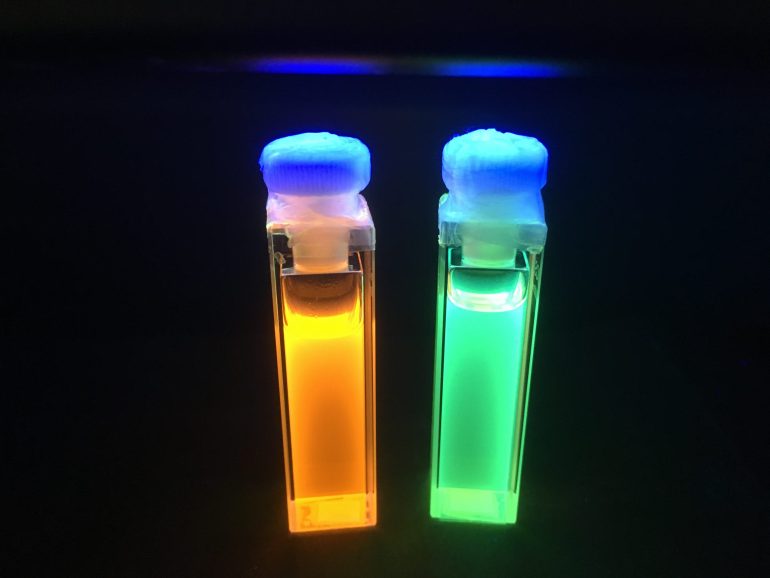Hall. Mlu. In the future, colors in electric motors will indicate when cable insulation becomes brittle and the motor needs to be replaced. Scientists at Martin Luther University Halle-Wittenberg, together with ELANTAS, a division of the specialty chemicals group ALTANA, have developed a new process with which dyes can be directly integrated into insulation. By changing the color they show how much the layer of insulating resins has broken around the copper wires in the motor. The results were published in the journal “Advanced Materials”.
It has long been the standard in modern internal combustion engines.
Detectors recognize, for example, that an oil change is necessary and thus saves unnecessary investigation. Electric motors also show signs of wear. Inside, they are usually made of tightly wound copper wires – and these in turn are coated with an insulating resin. “This separation changes over time. It becomes brittle as it breaks down by heat and chemical processes,” Prof. Dr. Wolfgang Binder from the Institute of Chemistry at MLU. However, from the outside, it cannot be seen. Whether the insulation of the inside wires is still intact or the entire motor needs to be replaced.
On behalf of the ELANTAS division of ALTANA, which produces specialized resin systems for such insulation, MLU scientists were looking for solutions to this problem. “Until now, developers have focused on how much material has broken down under certain conditions,” MLU chemist Alexander Funton explains. Recommendations were given for how long it would take before the exchange became necessary. Actual wear and tear depends on the conditions of use, especially temperature. Funton therefore developed a test device with which he could perform analysis over several months for four different resin systems that produced erosion products at different temperatures.
They found that 4 resins systems continuously release a certain alcohol under different temperature conditions. “We then collaborated with researchers and developers at ELANTAS to look for a sensor molecule for this alcohol,” he says. That is, a substance that is easily detectable and its properties change when alcohol binds it. The sensor molecule also has to withstand high temperatures and a normal production process. Furthermore, it should not change the electrochemical properties of insulation. The choice fell on a specific dye. Normally it glows red-orange under UV light, when the alcohol binds it, the color spectrum changes to light green.
Different color spectra can be analyzed with specialized instruments that can be directly fabricated in the engine. “That way you can tell if replacement is necessary without removing the motor,” Binder says. Hopefully, this will avoid unnecessary engine changes in the future. The new insulation can be used in electric motors in vehicles, but also in working machines and other equipment. “These results show what a successful combination of basic research and entrepreneurial application of the university can achieve,” Dr. Simon Rost, Head of Research and Development at ELANTAS in Hamburg. “In the future we will be able to provide additional value to our customers and further contribute to sustainable development.”
ELANTAS applied for a patent for the new process at the beginning of the year. The research was financially supported by the specialized chemicals group ALTANA and promoted within the EU project BAT4EVER as part of the “Horizon 2020” program.
About the study:
Funton, a. Et al. Self diagnostic polymers – inline detection of thermal degradation of unsaturated poly (ester imide). advanced Materials (2021). Doi: 10.1002 / adma.202100068

Web guru. Amateur thinker. Unapologetic problem solver. Zombie expert. Hipster-friendly travel geek. Social mediaholic.





